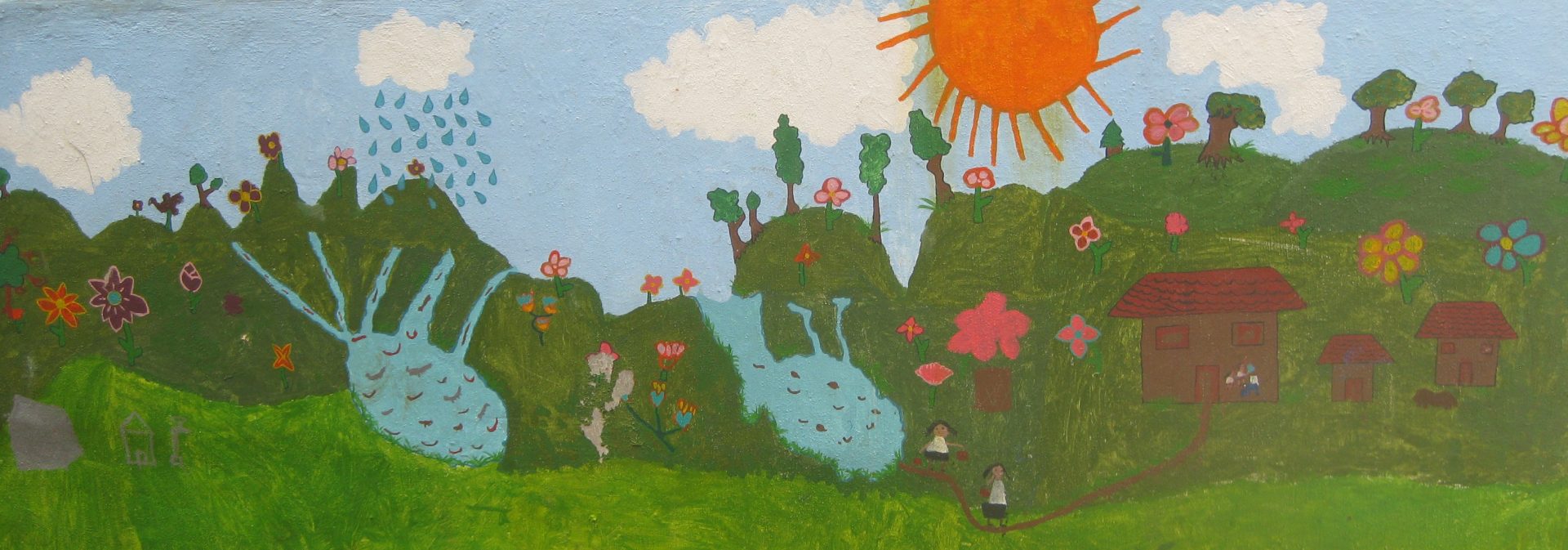After grabbing a quick breakfast that consisted of smoothies from the nearby grocery store and some cookies, we visited Los Altos, which is the highland region near San Cristobal where Cantaro Azul’s community networks program is implemented. Moy, a staff member from Cantaro Azul who grew up in the community, drove us for 3 hours to bring us to the community. The purpose of the visit was to talk to the community about how they wash their dishes and cups, and what they thought about using Horatia’s prototype. It was pretty cool watching the “interviews” because most things had to go through 2 layers of translation – from Tselta to Spanish to English, and the other way round too. I guess because I wasn’t in charge of the dishwashing project, I found plenty of opportunities to just observe the families and reflect on what I was seeing.
One thing that really stuck with me were my impressions after visiting the third family. Of the three families we visited, they had the safest dish and cup washing practises. They would wash their dishes with soap and tap water, and would rinse their cups with clean water from the garrafones before drinking from them. They didn’t really like chlorine either, but continued to use it because they understood that it made their water safer. And based on what they said, it was clear that they were particularly motivated to do all these for their children’s health. I found out afterwards that the family’s awareness was in part due to the fact that the father, Francisco, regularly traveled out of the community and into the big cities. This gave him a different perspective on water issues, which he imparted into the family’s daily practices. I had never realized what a huge difference outside and city exposure made to these issues, and I found myself thinking about modernity and rural communities. Modernity is often viewed as something that dilutes a pre-existing culture. Especially after the tour to indigenous communities, it was clear that outsiders shouldn’t impose their beliefs and teachings on others. But I realized that the outside also has the potential to benefit rural communities, such as through raising their awareness of public health topics. Sinead asked Moy about it, and he said that even though he doesn’t stay in the community anymore, the community is still a huge part of his identity. This made me feel that maybe outside exposure just gives a new perspective that can be incorporated into a community’s lifestyles, such as how Francisco did it with his family. But where do you draw the line between objective benefit, and dilution of culture? Instinctively, I feel that it is worthwhile going in and improving public health, but many of the justifications I have for this opinion could possibly be extended to justify other forms of imposition that are more commonly frowned upon.
On our trip back, we talked to Sinead and Moy (through Sinead’s translations :p) about NGOs too. They said that a lot of the indigenous groups and rural communities are used by NGOs to make money without actually helping them. I asked them how they knew that Cantaro Azul was an organization worth investing their time and effort in, and Sinead said that one thing that convinced her was that the staff members themselves were sometimes doubtful about how much their work was really benefitting the community. In this sense, the organization doesn’t have a “savior complex” and it realistic about the kind of impact they can have on communities. Moy also said something similar. He said that it’s clear from being in the organization what the organization’s philosophy really is. I recalled the first time I heard of Cantaro Azul in the CEVE 314 class too. Amidst all the discussion on how NGOs were often ineffective, Cantaro Azul seemed to stand out as an NGO that was grounded and sensible. Talking to Dr. Reygadas and the other staff members also continue to raise my respect for the organization. I’m really grateful that my interactions with Cantaro Azul has truly opened my eyes to the realities of complex social issues.
I know a part of me still holds questionable beliefs and assumptions about “underprivileged communities” and how NGOs interact with them, but if anything, this trip has forced me to question and re-evaluate many of them.
-Su Chen
